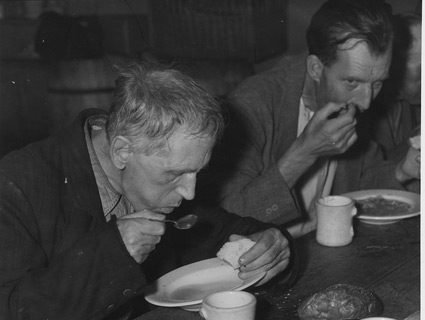It can be argued that being poor is not a crime, but it certainly isn’t something that many people want to be. Poverty has a stigma attached to it and it is often seen as a choice rather than a circumstance. But the truth is that poverty is a multifaceted issue and there are many contributing factors to it. Despite the fact that poverty can be incredibly difficult to escape from, it is still not a crime to be poor.

The causes of poverty are manifold, ranging from lack of opportunities and resources, to structural inequality. People who are born into poverty, due to structural inequalities such as racism and sexism, often struggle more to get ahead. This further entrenches poverty cycles, making it difficult for those affected to break out of them.
In addition to structural issues, other factors such as bad luck, health problems, or an economic downturn can also lead to poverty. It is important to remember that these are not choices, but rather circumstances that people find themselves in. It is easy to forget the individual stories behind poverty, and instead lump all those in poverty together as a group.
Though it may not be a crime to be poor, there are still many laws and policies in place that make it more difficult for those in poverty. These can range from the lack of access to essential resources, such as healthcare and education, to criminalization of the homeless. This often means that those in poverty can find themselves in a situation where they are treated as criminals, simply because they are poor.
The United States is one of the wealthiest countries in the world, yet more than 45 million Americans were living in poverty as of 2018. That’s 15 percent of the population living on less than $12,490 per year for an individual or $25,750 for a family of four. And the situation is even worse for certain groups, such as African Americans, Native Americans, and Latino Americans.
But being poor is not a crime in and of itself. There are certainly criminal activities that can lead to poverty, such as theft or drug dealing. But simply being poor does not make someone a criminal. However, there are a number of ways that poverty can lead to criminalization. One example is ‘poverty tickets’, which are issued to people who are unable to pay fines or court costs. If the fines are not paid, the individuals may face jail time, making it even harder to escape poverty.
In addition, poverty can lead to homelessness, which can often result in criminalization. For example, homeless people are often seen as a nuisance by police and may be arrested for loitering or sleeping in public. This can lead to further entanglement with the criminal justice system.
Ultimately, it is important to recognize that poverty is an issue that affects millions of people around the world, and one that needs to be addressed in a compassionate and understanding way. It is not a crime to be poor, but rather a result of many different social, economic, and structural factors. We need to ensure that those in poverty are given the resources and support they need to break out of these cycles and live a life of dignity.

